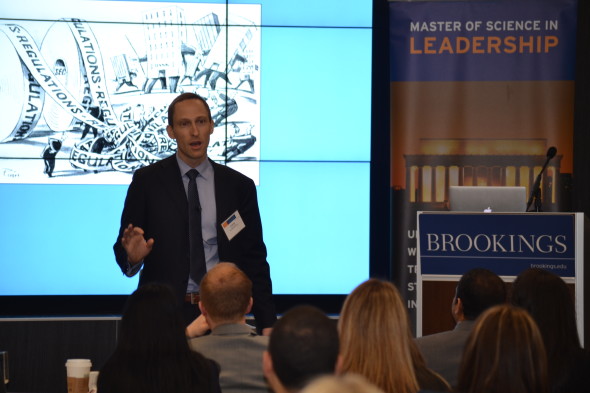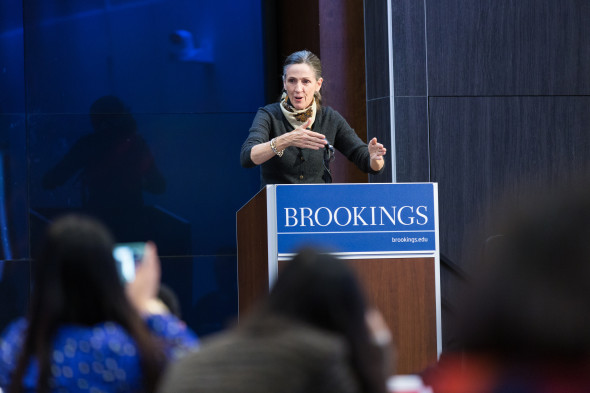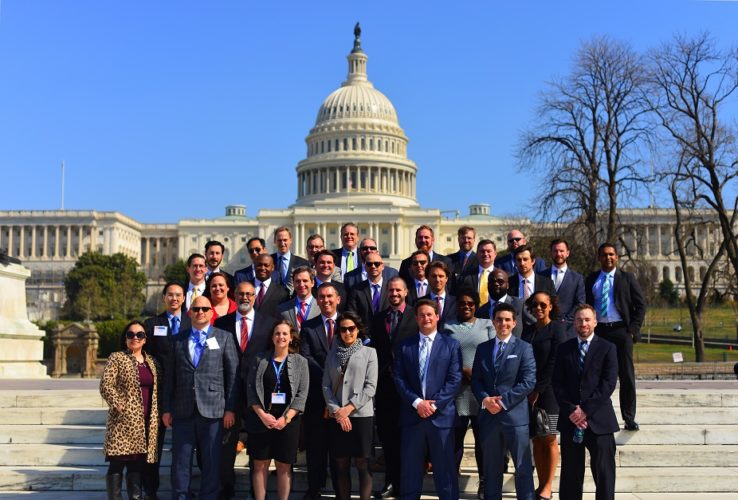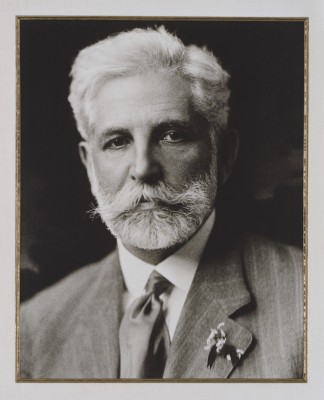Understanding the inner workings of the federal government and how it impacts business through a residency with Brookings Executive Education (BEE) is one of the unique components of the Executive MBA program at Olin. And beginning in March 2018, Olin full-time MBA students will also have the opportunity to take advantage of the Washington D.C. residency that provides an insider’s view of bureaucracy, policy, and process.
 “Our goal with the residency is to cut through the political polarization that dominates the story coming out of Washington,” explains Lamar Pierce, Associate Professor of Organization and Strategy and at Olin and BEE faculty member. “We want our students to understand that most of the people in our capital are committed to helping create a better world, and although they may disagree about how to achieve that, they’re trying to solve the same problems.”
“Our goal with the residency is to cut through the political polarization that dominates the story coming out of Washington,” explains Lamar Pierce, Associate Professor of Organization and Strategy and at Olin and BEE faculty member. “We want our students to understand that most of the people in our capital are committed to helping create a better world, and although they may disagree about how to achieve that, they’re trying to solve the same problems.”
Earlier this month, 36 Executive MBA students (pictured above), traveled to Washington, D.C. to engage with policymakers, senior-ranking officials, and other key decision-makers in the nation’s capital. The BEE four-day immersion program introduces students to practitioners from government, industry, and NGO’s in an experiential format, and allows dialogue with experts that have worked at the highest levels of the White House, Congress, and other policy making institutions. EMBA Class 49 even had one such conversation on the Floor of the House of Representatives, just one week after the President’s address to a Joint Session of Congress.
 The program broadens students’ perspectives and offers unique insight into how non-market strategy shapes and frames the institutional landscapes in which firms operate. Through active participation and dialogue, the program reminds leaders in both the private and public sector that the best solutions to complex problems result from healthy collaboration between business, government, and broader society.
The program broadens students’ perspectives and offers unique insight into how non-market strategy shapes and frames the institutional landscapes in which firms operate. Through active participation and dialogue, the program reminds leaders in both the private and public sector that the best solutions to complex problems result from healthy collaboration between business, government, and broader society.
BEE is a partnership between two world-renowned organizations: the Brookings Institution and Olin Business School at Washington University in St. Louis. Instrumental to both, St. Louis businessman Robert S. Brookings (1850–1932) founded the D.C.-based think tank and led Washington University’s governing board for 33 years.
Visit the Brookings Executive Education website for more information.
Guest Blogger: Evie Kallenbach, Brookings Executive Education




















